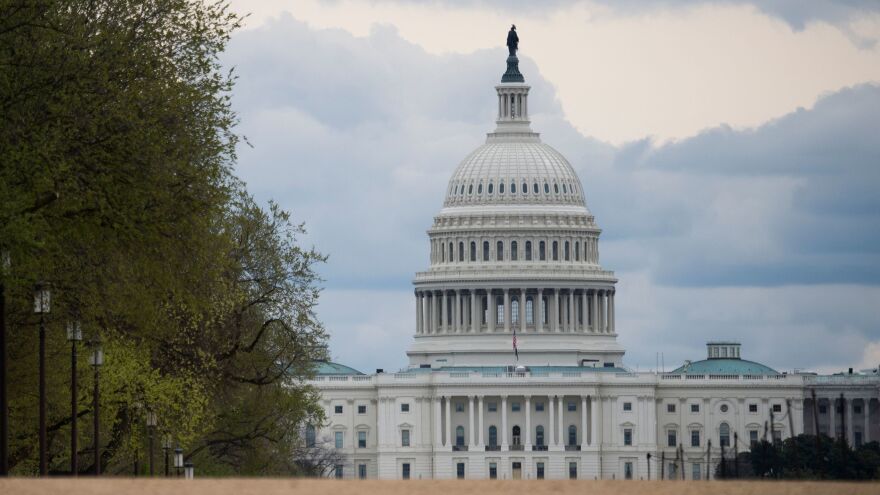Lobbyists are virtually descending on official Washington to try to gather as much as they can of the government's ongoing coronavirus relief packages.
Companies and interest groups — many of them new to the lobbying world — are competing for loans and other forms of financial help.
The Center for Responsive Politics tracks money spent in U.S. politics. Sheila Krumholz, the organization's executive director, talked with All Things Considered about the boom in lobbying for coronavirus relief. Here is some of that interview:
I'm curious what industries you've noticed are hiring lobbyists for the first time now.
About three-fourths of the new registrations sent for the last month have cited COVID and are by companies that are either new to lobbying or haven't lobbied in recent years. And about a third of those are for health care companies. ...
There are some related to education which aren't so typical, but lots of travel and tourism, gaming and entertainment, and retail and manufacturing, kind of what you would expect to see at this time.
Lobbying is traditionally face-to-face, it's this incremental process. What does that process look like now when everyone's working remotely and when the legislative process is so much more accelerated?
Like the rest of us, the lobbyists on K Street have had to pivot from in-person meetings to phone and video calls and emails. Not ideal when you're trying to sell a policy to Congress that needs quick information. But lobbyists can provide that if their calls are answered. So that's where the revolving door networks are really important. There are short time frames and the lack of in-person contact makes getting your call taken critical.
Have you spotted any examples of industries that are using this pandemic opportunistically, like to get something now that they have fought for in the past but couldn't get before?
Oh, absolutely. The bigger groups with lots of lobbying experience are adept at repackaging their existing agenda. It would be urgent and worthy of relief even when those items have been on the wish list for a long time. So hotels get a tax break they've been pushing for since 2017. Big banks have pushed for deregulation they've long wanted. Tech has pushed for delays in privacy laws and changes for gig workers. So that's being kind of mushed into the package.
Listen to the full interview here .
Copyright 2020 NPR. To see more, visit https://www.npr.org. 9(MDAxMzY2MjQ0MDEyMzcyMDQ5MzBhZWU5NA001))



